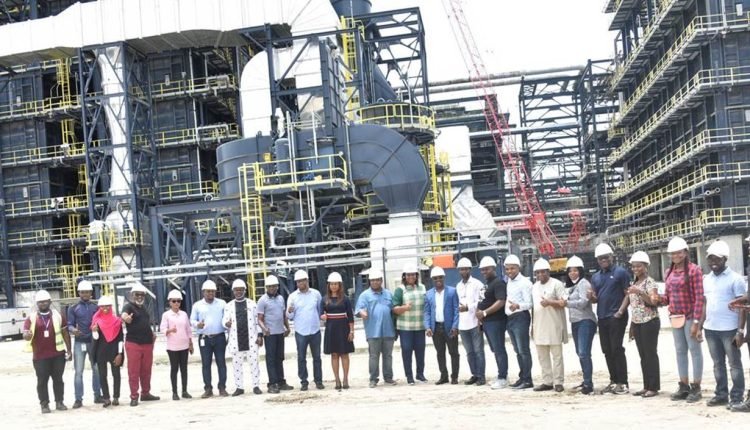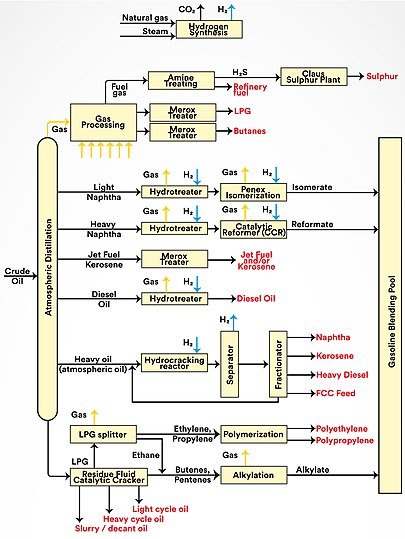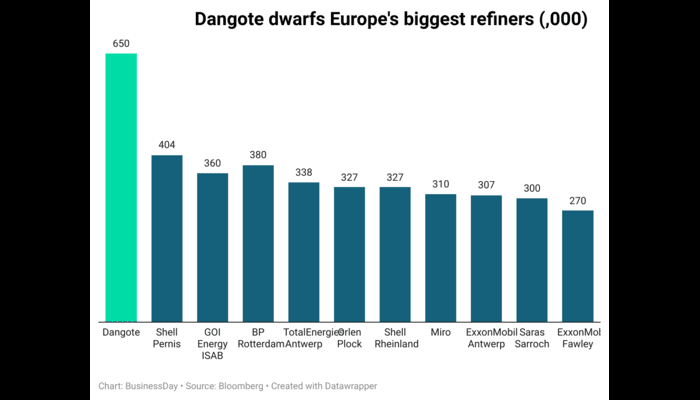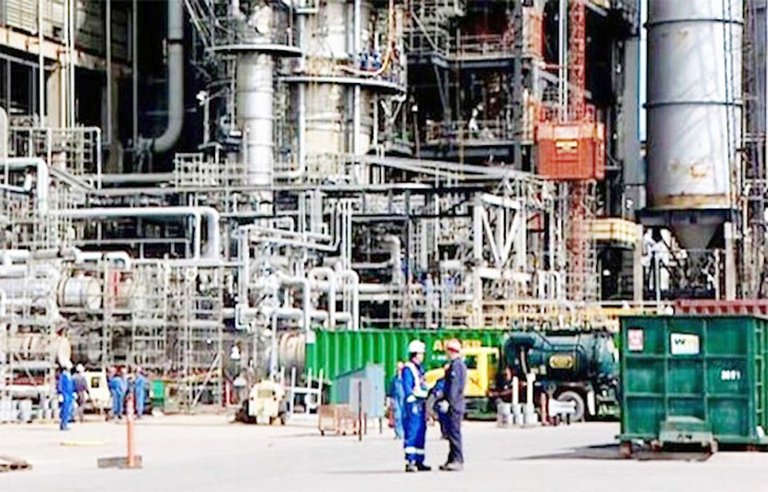
In the vast and intricate web of the global oil industry, one man has emerged as a disruptive force, reshaping the landscape with his ambitious endeavors. Aliko Dangote, Africa's wealthiest individual, has embarked on a monumental journey that promises to revolutionize the way we view oil production, distribution, and consumption.
At the heart of Dangote's vision lies the Dangote oil refinery, a colossal undertaking that stands as a testament to his unwavering ambition and ingenuity. With an investment of $20 billion, this state-of-the-art facility has set its sights on becoming the largest refinery in Africa and Europe, boasting a staggering capacity to refine up to 650,000 barrels per day (bpd).

Production flow chart of the Dangote refinery
But it's not just about the numbers; it's about the transformative impact that Dangote's refinery is poised to have on the global oil market. For decades, European refiners have held sway over Nigeria's oil imports, enjoying a lucrative market fueled by the country's unreliable power supply. Now, with the supply of diesel from the Dangote refinery, that dominance is being challenged like never before.
Gone are the days when Nigeria was beholden to European refiners, importing refined products to the tune of $17 billion annually. With Dangote's diesel hitting the market, the tide is turning, putting pressure on European refineries already struggling to compete in an increasingly crowded market. Analysts predict that the emergence of the Dangote refinery will not only reshape the dynamics of the oil industry but also herald a new era of competition and innovation.

But it's not just about business; it's about the broader implications for Nigeria's economy and development. As the largest refinery in Africa, Dangote's facility has the potential to catalyze economic growth, create jobs, and reduce the country's reliance on imported fuels. By producing diesel locally, Nigeria can save billions of dollars in import costs, redirecting those resources towards critical infrastructure projects and social development initiatives.
Moreover, Dangote's refinery represents a paradigm shift in the global refining landscape, challenging the traditional dominance of European refiners and empowering African countries to take control of their energy futures. With Nigeria at the forefront of this transformation, the country is poised to emerge as a regional powerhouse, driving innovation and progress across the continent.
But perhaps the most significant impact of Dangote's refinery lies in its potential to address the pressing environmental challenges facing the oil industry. With stringent environmental standards becoming increasingly prevalent, European refineries are facing mounting pressure to adapt or face closure. Dangote's refinery, with its state-of-the-art technology and commitment to sustainability, offers a viable alternative, providing cleaner, greener fuels to meet the demands of a rapidly changing world.

source
The Dangote refinery on Tuesday announced a further reduction in the price of diesel and aviation fuel to N940 and N980 per litre respectively.
This announcement came a week after the company announced a reduction in the price of diesel from N1,200 to N1,000 per litre.
Commending the company’s efforts last Wednesday, President Bola Tinubu, in a statement through his Special Adviser on Media and Publicity, Ajuri Ngelale, affirmed that Nigerians and domestic businesses are the nation’s surest transport and security to a glorious destiny of economic prosperity
In conclusion, Aliko Dangote's diesel disruption is not just a business venture; it's a catalyst for change, a beacon of hope in an industry grappling with uncertainty and upheaval. With his visionary leadership and unwavering determination, Dangote is leading the charge towards a brighter, more sustainable future for Nigeria and the global oil industry as a whole.